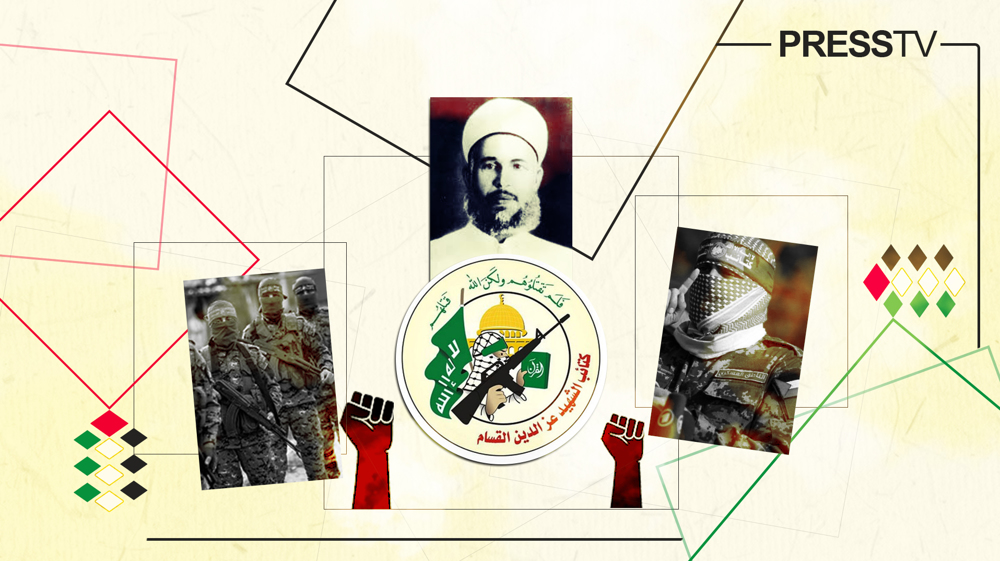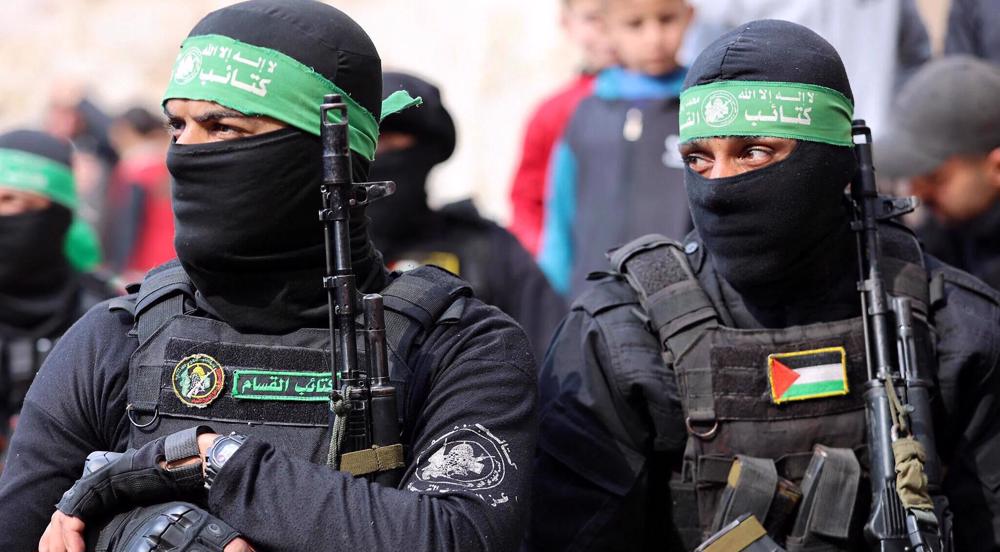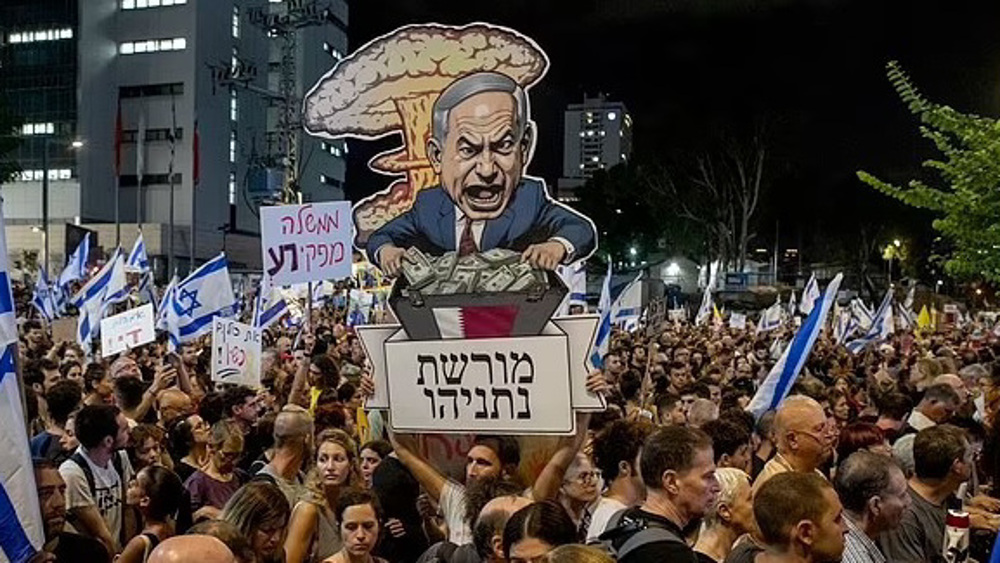Ezzedine al Qassam: the man who inspired armed struggle against Israeli occupation
By Humaira Ahad
More than 440 days after launching the historic Operation Al Aqsa Flood against the Zionist entity, which stunned the world, the Al-Qassam Brigades continue to resist occupation forces in the Gaza Strip.
On Friday, Al-Qassam Brigades fighters targeted the "Magen" military site east of Khan Yunis in southern Gaza using an Al-Zawari suicide drone. In another coordinated operation, they killed an Israeli sniper at close range in Jabalia camp, northern Gaza, and detonated an explosive device, killing six others in the same area.
For over 14 months, the military wing of the Gaza-based resistance movement Hamas has been engaged in intense battles against Israeli occupation forces across the besieged Palestinian territory. Despite limited resources, they have inflicted significant losses on the enemy forces.
Established in 1992, the Al-Qassam Brigades have become synonymous with resilience and heroism. The group is named after Syrian freedom fighter Ezzedine al-Qassam, chosen to symbolize their mission of armed resistance against the illegal Israeli occupation of Palestinian territories.
Al-Qassam is remembered as a pioneering resistance fighter against the British occupation of Palestine. He fought Western colonizers in West Asia for years.
After being expelled to Palestine by the French colonialists, the brave warrior took up the Palestinian cause, calling for armed resistance against Zionist and British assets.
Al-Qassam believed that armed revolution was the only way to prevent the establishment of a “Zionist state” in Palestine at a time when the method of armed revolution was not familiar to the Palestinian national movement. Palestinians mostly focused on demonstrations and conferences.
Who was Ezzedine al-Qassam?
Al-Qassam was born in the Syrian town of Jableh, south of the port city of Latakia, on December 19, 1882.
He obtained Islamic education by attending classes at a local school. At 14, he traveled to Cairo to attend the lectures at al-Azhar Mosque given by distinguished teachers, including the famous Islamic reformer Shaykh Muhammad Abdu.
The gatherings of Shaykh Muhammad Abdu and the writings of Shaykh Jamal al-Din al-Afghani inspired the young Al-Qassam, according to those who knew him.
With an Ahliyya diploma, he returned to Jableh in 1903, where he succeeded his father in running a school and teaching the basics of reading and writing, Qur'an memorization, and some modern subjects.
Al-Qassam was also appointed as the imam of the local al-Mansouri Mosque. As a young Islamic scholar, he set out on a mission to educate people about their religion and rights.
His sermons, lectures, and personal conduct made him popular among the local population. He later gained popularity in the neighboring regions as well.
When the Italian Army invaded Libya in 1911, Al-Qassam rose to the pulpit of the al-Mansouri Mosque, calling for holy struggle (jihad).
He was among the first to join the revolt against French occupation on the Syrian coast in 1919–20 and fought valiantly against the French in the mountains surrounding the Citadel of Salah al-Din (Qal‘at Salah al-Din) north of Latakia.
Witnessing his zeal, the French regarded Al-Qassam as a threat to their control, sentencing him to death.
Months after the French mandate was imposed on Syria, a warrant was issued for Al-Qassam’s arrest, forcing him to flee to Haifa in Palestine in December 1920.
Period in Palestine
After arriving in Palestine, Al-Qassam taught at the al-Burj school and the Istiqlal Mosque of Haifa. In 1928, he joined the Sharia Court while establishing al-Shabab al-Muslimeen in Palestine.
The group was inspired by the Muslim Brotherhood that Hasan al-Banna had founded in Egypt.
As Palestine was under the British mandate following World War I, the British government tried to implement the controversial Balfour Declaration of 1917 to establish a “national homeland” for the Jews in the land of Palestine.
Al-Qassam followed closely the growing menace of Zionism as a result of British support of the “Jewish National Home”. He became convinced that Britain was the root cause of the problem and that only an armed struggle could restrain the Zionist project.
Al-Qassam considered the British occupation to be the first enemy of Palestine and called for fighting the Zionist influence that was increasing significantly.
His efforts were lauded and he came to be seen as a Muslim hero for combating European influence in Palestine and throughout the Muslim world.
Establishment of Al-Qassam Brigades
The Syrian scholar formed secret resistance groups to fight the British occupation of Palestine. He desired to keep the group hidden from the British and Zionist intelligence agencies.
In 1930, Al-Qassam obtained a religious edict (fatwa) from Sheikh Badr al-Din Al-Hasani, an Islamic cleric-leader in Damascus, for a holy jihad against both the British and Zionists.
After the edict, these groups secretly carried out operations against the British occupation, and these attacks continued for years with the occupation authorities and intelligence unaware of it.
The prominent cleric announced the existence of these groups in 1935. Following the announcement, Al-Qassam came under continuous surveillance from the British authorities.
He was initially reluctant to declare jihad against British colonialism as the group lacked the means to fight the British. However, the flood of mass Jewish immigration in the early 1930s, the increasing level of surveillance over his activities by the authorities, and his apprehension of a pre-emptive move against him led him to declare jihad on the night of November 12, 1935, in Haifa.
Al-Qassam took to the forests of the village of Ya‘bad in the district of Jenin, with eleven companions. The group fought relentlessly for six hours with British forces on November 20.
At the age of 53, Al-Qassam was martyred by the colonizing forces. He was buried in the cemetery of Balad al-Shaykh in the Haifa district.
His martyrdom became a source of inspiration for the new generation of Palestinian freedom fighters. His assassination is considered instrumental in inspiring the Great Palestinian Rebellion (1936–39).
Decades later, Al-Qassam’s struggle against Western colonizers continues to inspire young resistance fighters to rise against the brutal occupation of the Israeli regime.
On October 7 last year, his long-cherished dream came true as Al-Qassam Brigades surprised the Israeli occupation and its Western backers with a historic military operation that changed the equation.
‘No two-hour war’: Iran vows immediate retaliation to any attack
Pezeshkian: US must end provocations if it seeks genuine diplomacy
Iran summons German ambassador over Merz’s ‘low-minded’ remarks
Iran's Armed Forces warn EU of ‘consequences’ of IRGC designation
Iran FM: EU’s blacklisting of IRGC a ‘major strategic mistake’
EU blacklists IRGC in legally flawed move irrespective of consequences
VIDEO | Press TV's news headlines
VIDEO | Afghanistan opens first specialized cancer hospital

















 This makes it easy to access the Press TV website
This makes it easy to access the Press TV website